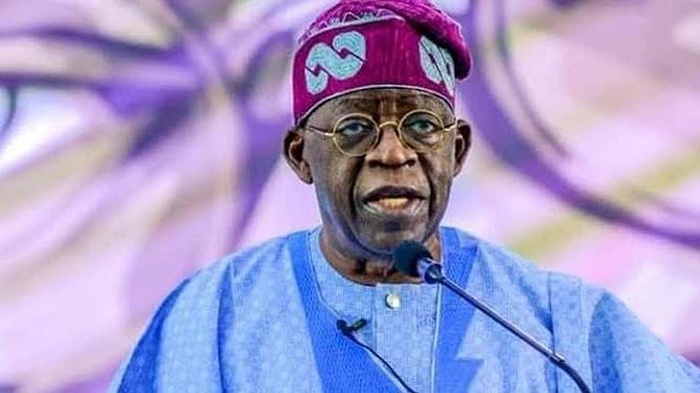
By Fabian Ekeruche
An expert in climate change and development, Prof. Chukwumerije Okereke, has called on the administration of Bola Ahmed Tinubu to prioritise climate change. Okereke made the appeal in an interview on Wednesday, June 7, 2023, in Lagos.
The don, who is the Director, Centre for Climate Change and Development, Alex Ekwueme Federal University, Ndufu-Alike, Ebonyi State, said that climate change poses one of the greatest economic, physical, financial, and development risks to Nigeria.
He said that the call became imperative as the global community reflected on the environment on the week of the celebration of World Environment Day.
Nigeria swore in a new President, Bola Ahmed Tinubu, who took an oath of office on May 29, 2023, at the Eagle Square in Abuja.
The professor noted that, during his inaugural speech, Tinubu laid emphasis on the rule of law, security, and combating terrorism as priorities for his administration, as well as the pursuit of prosperity and development through job creation.
He said that the president also indicated that he would pursue the effort to build more infrastructure, adding that he would try to unify the exchange rate and remove subsidies.
“Most of the things highlighted by the president were, in many respects, extremely laudable goals that should be pursued.
“For example, according to the most recent reports from the World Bank and other international organisations, Nigeria has the highest unemployment rate, so it is right that a focus on job creation should be a priority for the new administration.
“However, the speech of the President has one very big and glaring omission. This significant omission is the President’s failure to identify combating climate change as one of his top priorities.
“This is a very important omission because climate change poses one of the greatest economic, physical, financial, and development risks to Nigeria,” Okereke said.
He said that if climate change was not appropriately prioritised and tackled, that could compromise the ability of the President to achieve all these other laudable objectives which he has enumerated, including job creation, food security, and economic prosperity.
The don said that Nigeria was among the top 10 most vulnerable countries in the world and that climate change was already wreaking havoc on all aspects of the nation’s economy.
“It has been calculated that climate change as of today is costing Nigeria up to $100 billion. This represents about N15 trillion and close to 20 per cent of Nigeria’s GDP.
“Calculations show that by 2050, climate change could cost Nigeria about N460 billion. This is in the region of about N69 trillion and this could be between six to 30 per cent of Nigeria’s GDP.
“Climate change is already causing drought and loss of crop yield in Nigeria. In some cases, up to 50 per cent of crop yield loss is expected by 2050,” Okereke said.
The expert said that about 70 per cent of the Nigerian population was engaged directly or indirectly in various forms of agricultural activities accounting for about 22 per cent of Nigerian GDP.
“So, it is easy to see that without a concerted effort to tackle climate change, the new president will struggle to fulfil his goal to fight hunger and poverty in the country,” Okereke said.
He said that another way in which climate change was affecting the economic situation in Nigeria was through the floodings that had become recurring in the nation.
“Just recently, we’ve seen the number of deaths and displacements that have been caused by unprecedented floodings which had affected nearly 30 of 36 states of the country. Up till today, clear estimates have not been provided by the government on these losses. But we do know from the government’s own figures that the direct estimate of damage and loss caused by the 2012 flood is about $16.9 billion, which is about N2.63 trillion naira,” Okereke said.
“Up to nearly 4000 kilometres square in the coastal regions of Nigeria will be inundated by a minimum rise of sea level due to climate change. An estimated 53 million people in the country may need to be relocated, If the sea level rises to 0.5 metres. Places like Bonny, Forcardos, Lagos, and Port Harcourt will be at risk with vast amounts of property and oil infrastructure at risk,” Okereke added.
The don said that climate change was also contributing to desertification and drought, “which is helping to fuel insecurity in Nigeria”.
On the other hand, Okereke said that climate change posed a great opportunity for Nigeria.
He said that Nigeria was blessed with abundant natural resources like wind and solar, geothermal, and other critical minerals that would fuel the global transition in the coming decades.
“International climate finance is now worth over $3 trillion. So, by positioning Nigeria effectively to tackle climate change, the president can unlock billions of international climate finance and help to address the perennial challenge of lack of energy access,” Okereke continued.
“This represents one of the biggest constraints against economic growth in the country. If climate change is properly understood and tackled, it can offer Nigeria enormous opportunity to unleash the green growth transition potential that it has to create jobs security and help in the fight against terror,” he added.
“So, as we celebrate the World Environment Day, it is important to really bring to the attention of the president, the need to prioritise climate change in his agenda to make it the left, right, and centre of his administration,” Okereke said.
He advised the president to appoint someone with the knowledge, experience, passion, and technical know-how needed to situate climate change as an important, if not the most important economic issue facing Nigeria.
He added that such a person should be able to navigate and deal or negotiate with the international community in such a way that will unlock streams of climate finance that can help Nigeria to make a transition to a green economy and show leadership in this area.










